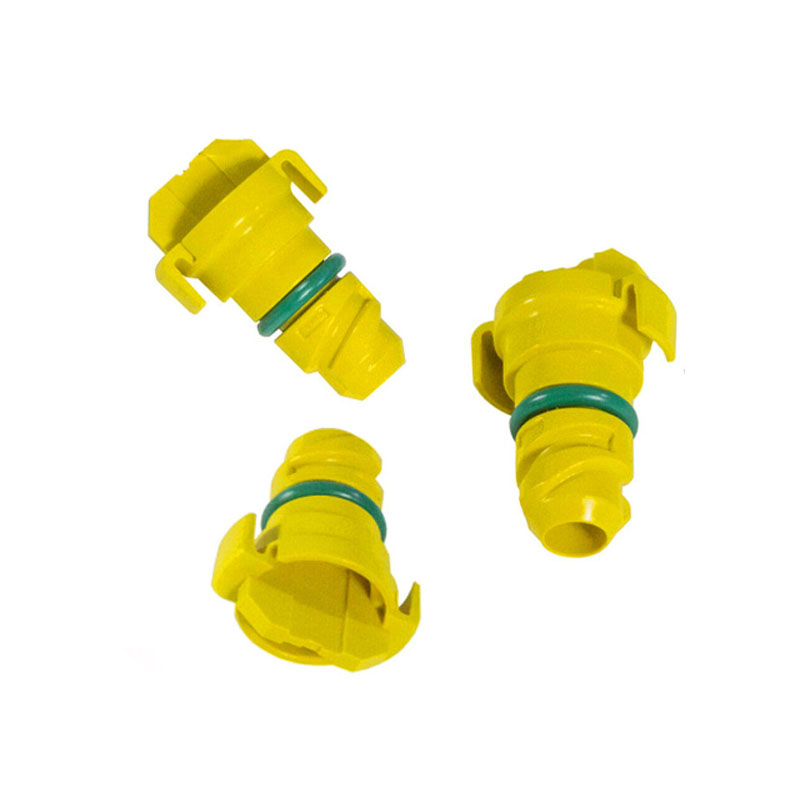Understanding the Function and Applications of Oil Seals in Machinery Operations
The Importance and Applications of Oil Seal Use
Oil seals, also known as rotary shaft seals or lip seals, are crucial components in various mechanical systems that prevent the leakage of lubricants and protect against the ingress of contaminants. These seals play a vital role in ensuring the efficient operation of machinery across a myriad of industries, including automotive, manufacturing, aerospace, and more. Understanding the significance of oil seals, their applications, and maintenance can help industries improve their operational efficiency and extend the lifespan of their equipment.
Understanding Oil Seals
Oil seals typically consist of a flexible elastomer material that fits snugly around a rotating shaft. They are designed to create a barrier that retains lubricants (like oil or grease) while keeping dirt and other foreign particles out. This functionality is essential because the presence of contaminants can lead to mechanical wear, corrosion, and ultimately premature failure of machinery.
Additionally, oil seals are designed to withstand various pressures and temperatures, making them adaptable for different applications. Their construction often includes a metal casing to provide stability and prevent distortion, along with a lip that exerts pressure against the shaft, ensuring a reliable seal.
Applications of Oil Seals
1. Automotive Industry Oil seals are widely used in vehicles, particularly in the engine and drivetrain components. They are found in places like crankshafts, camshafts, and transmission systems. In these applications, oil seals prevent lubricant loss and ensure that the engine runs efficiently without risking damage from contaminants.
2. Industrial Machinery In factories and industrial settings, oil seals protect bearings, gears, and hydraulic systems. Proper sealing is vital for maintaining lubrication, reducing friction, and ultimately increasing the lifespan of mechanical systems. In manufacturing equipment, oil seals contribute to minimizing downtime, which can be costly.
3. Aerospace Applications The aerospace industry relies heavily on oil seals to maintain the integrity of various components under extreme conditions. Seals must be resilient against high temperatures, pressures, and even aggressive fluids. Aircraft engines and landing gear assemblies utilize oil seals to ensure safety and reliability during operation.
oil seal use

4. Household Appliances Oil seals are not limited to heavy machinery; they are also found in common household appliances. Devices such as washing machines, refrigerators, and air conditioners use oil seals to prevent oil leaks and keep systems running smoothly.
Maintenance and Care
Proper maintenance of oil seals is critical to ensuring their longevity and effectiveness. Engineers and technicians should regularly inspect seals for signs of wear, such as cracks, hardening, or deformation. Early detection of potential issues can prevent more significant problems, such as leaks or system failures.
When replacing oil seals, it’s essential to ensure that the replacement is compatible with the application. Factors such as temperature, pressure, and the type of fluids being sealed must be considered to avoid premature degradation of the seal. Moreover, proper installation is crucial; a poorly fitted seal can lead to leaks and decreased performance.
Environmental Considerations
As industries increasingly focus on sustainability, the use of oil seals also intersects with environmental concerns. Leaking lubricants can lead to pollution, harming ecosystems and potentially leading to legal ramifications. By employing high-quality oil seals, companies can reduce the risk of leaks and demonstrate their commitment to environmental stewardship.
Moreover, the selection of materials for oil seals can impact both performance and sustainability. Manufacturers are exploring biodegradable materials and innovative designs that not only enhance performance but also reduce environmental impact. This trend towards sustainable engineering practices is becoming an integral part of research and development in seal technology.
Conclusion
Oil seals are a fundamental component in many mechanical systems, playing a crucial role in preventing leaks and protecting against contaminants. Their applications span various industries, from automotive to aerospace, underscoring their importance to efficient operation and maintenance of machinery. By investing in quality seals and maintaining them diligently, industries can enhance the reliability of their equipment, reduce operational costs, and contribute to a more sustainable future. As technology advances, the development of innovative oil seals will continue to shape the efficiency and effectiveness of mechanical systems globally.
-
The Ultimate Guide to Car Repair Kits: Tools and Essentials Every Driver Should Own
News Aug.01,2025
-
The Complete Guide to Oil Pan Gaskets: Sealing Engine Leaks the Right Way
News Aug.01,2025
-
Preventing Oil Leaks: A Complete Guide to Oil Pan Gaskets and Drain Seals
News Aug.01,2025
-
Everything You Need to Know About Oil Pan Gaskets and Drain Plug Seals
News Aug.01,2025
-
Essential for Car Owners: How to Use a Car Repair Kit to Deal with Minor Breakdown
News Aug.01,2025
-
Comprehensive Guide to Engine Oil Sump Gaskets and Related Seals
News Aug.01,2025
-
The Ultimate Guide to Boat Propeller Bearings and Trailer Wheel Bearings
News Jul.31,2025
Products categories















